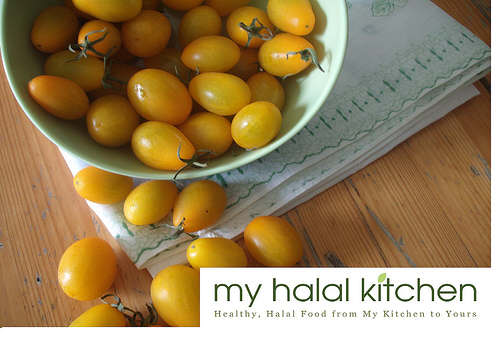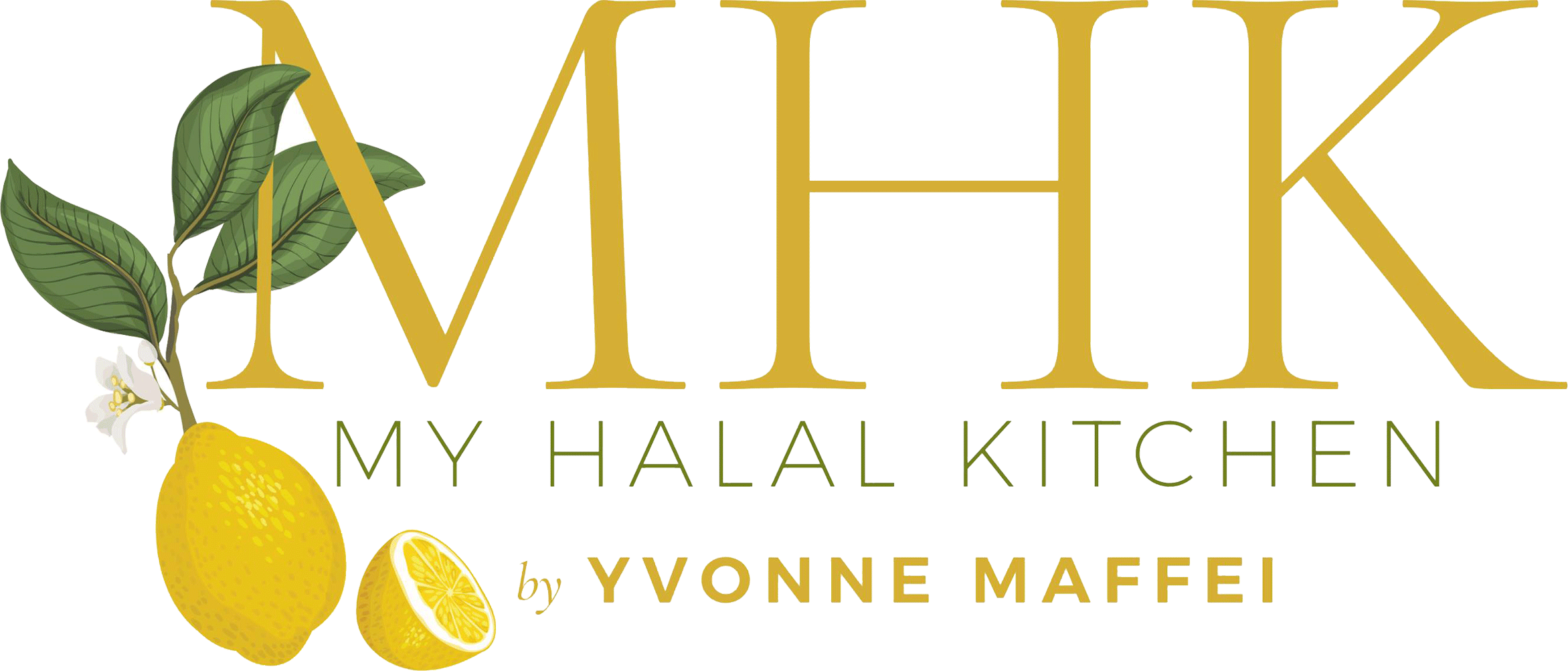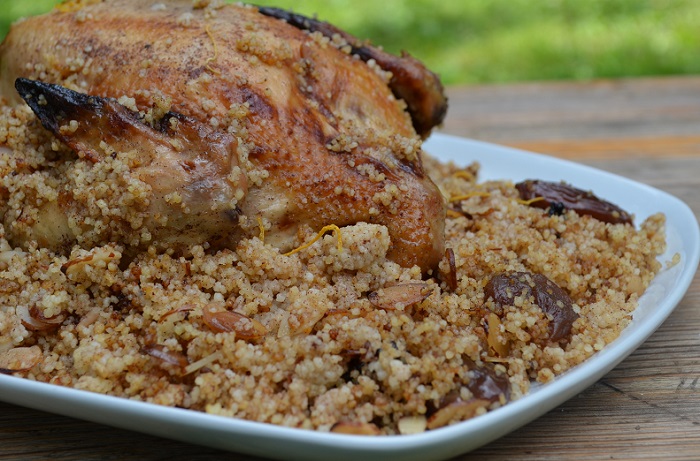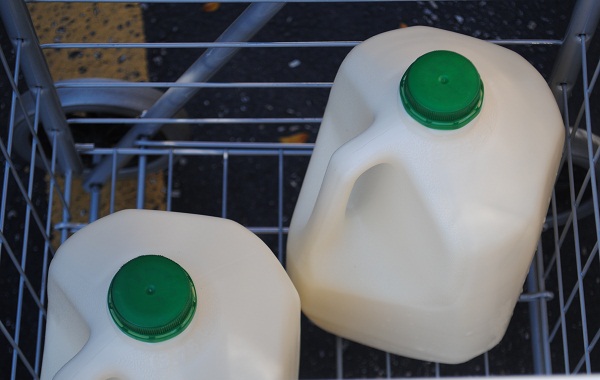A Halal Food Revolution

You don’t have to be a medical expert to notice that among the Muslim community living in the United States, there is a prevalence of high sugar, high blood pressure, and high cholesterol, all of which can lead to chronic diseases like diabetes, heart disease and heart attacks, even in young individuals.
There doesn’t seem to be a lack of great home cooks or halal restaurants within the Muslim community. Many traditional recipes from immigrant Muslim home countries actually originate in healthy ingredients and cooking methods.
Although I am not a doctor or a nutritionist, I am a home chef, wife, family member and friend who cooks for people I care about, which means I want them to eat what Allah (swt) ordained for us and what I know is inherently healthy for us, too.
So, what’s the problem?
There are at least 10 obstacles Muslim individuals and families face today that directly or indirectly affect healthy eating habits:
1. Not Enough Time to Prepare Healthy Meals
Muslim families today are busier than ever. Many people are opting for convenience, packaged foods resonating their ethnic cuisine. These foods are often full of salt, sugar and preservatives.
2. Too Much (Cheap) Variety at the Grocery Store
Sometimes a plethora of choices is simply overwhelming to people, especially those who are used to simple, all natural foods in their home country. Many inexpensive food choices are offered cheaply in abundance, adding to the ease of purchasing these over higher quality foods.
3. Food Labeling is Difficult to Decipher
Packaged foods list ingredients in English that even natives can’t understand, so it is difficult to decide not only if something is halal, but also if it is healthy. Foods that are certified halal are often seen as ‘perfect’, so the actual ingredients are often ignored altogether. In doing so, one also ignores preservatives, added salt sugar and sometimes, MSG in products.
4. Removing Children From the Kitchen
Parents have the best of intentions for their children, and this often means expecting that their only real duty at home is to study. It gives young people, especially young girls the idea that cooking is learned later in life, when one is married and has a family. Unfortunately, this leaves a lot of young people lost when it comes to not just cooking, but making healthy food choices when doing so.
5. Added Sugar & White Flour
We all love our sweets and our carbohydrates, but what we don’t always realize is that when ‘traditional foods’ are packaged and processed, they simply are not made without added preservatives. The addition of bleached and processed flour and sugar to products that are already naturally sweet renders many products as unhealthy and lacking any significant amount of nutrition.
6. Lack of Fresh Fruits and Vegetables
Our community events are often centered around food, which is something we all enjoy. More often than not, however, there is a lack of variety in fresh products, particularly fresh green vegetables in the form of salads. We tend to fill our plates with white rice, white pita bread and meat instead.
7. Socializing
We love to socialize-and there’s nothing wrong with that. It’s part of being a community and bonding with our brothers and sisters. The problem is that we often sit for eating as opposed to walking and talking or having some sort of exercise as part of the socialization. This is particularly challenging for the sisters.
Renowned British Chef Jamie Oliver has recently debuted his Food Revolution for all of America, which is a great thing, but it doesn’t focus even more narrowly on the Muslim population at large. I’m proposing one for the Muslims. We need a food revolution to have a health revolution among us. Below are some of the ways I believe we can start, insha’allah.
1. Check the Oils You Cook With.
Be sure to incorporate some of these healthy oils into your diet.
• Extra virgin olive oil (salads; sauté)
• Extra virgin coconut oil (sauté)
• Grape Seed (baking)
• Butter (not margarine) for baking, in moderation
2. Check Your Cooking Methods
• Lightly sauté vegetables or drizzle with olive oil after steaming
• Keep frying to a minimum
• Steam vegetables whenever possible
• Eat fresh fruits and even make juices with them
3. Use Healthy Sweeteners, and Use Them Minimally
• Pure honey (local is best)
• Agave (cactus nectar)
• Piloncillo (Mexican raw cane sugar cone)
• Raw cane sugar
• Pure maple syrup
4. Avoid the White Stuff
White flour, rice and sugar are mostly bleached, over-processed and stripped of nutrients, coming to your table in the form of desserts and breads. Instead, try:
• Black (wild grain) rice
• Red rice
• Wheat bread (including pita)
• Whole grain bread
• Multi-grain bread
• Back bread (Lithuanian and Russian varieties)
• Rye bread
• Corn and wheat flour tortillas
• Chappati and Naan made from wheat flour
Also, incorporate beans into your diet and try all the different varieties out there:
• Black beans
• Red beans
• Garbanzo (chickpeas)
• Pinto (pink)
• Navy beans
• Fava beans
• Fresh green beans
• Peruvian beans (yellow)
5. Study the Hidden Meanings in Food Labels, Even if the Product is Halal-Certified
This can be quite a challenge, but the internet is a wonderful resource for this type of investigation. Check out this site, to get started.
6. Pay Close Attention to Your Child’s Lunch
Don’t wait around for the school to serve your child healthy meals and snacks. Take the time to pack a healthy lunch and even get the kids involved in what they’re taking to school. They’ll be more likely to eat it all if they’ve had a role in preparing it.
7. Plant a Garden…with Your Family
Now is the time to plant something, anything. If you don’t have a yard, plant veggies and herbs in an outside apartment balcony. No balcony? Check your local Park District for community gardens. For a small fee you can rent out a plot around the size of 20’ x 20’, which is more than enough space for vegetables that will keep you going all summer and enough to preserve in the winter, insha’allah. The kids will learn a lot by doing this, as well.
8. Drink More Water
Water not only hydrates the human body, it also flushes out toxins and waste. Drinking more water also allows us to feel less hungry or crave foods that are part of an unhealthy diet.
9. Exercise More
A ten-minute walk around the block can do a person good in many ways. Make it a daily habit, rain or shine and insha’allah, your body will thank you.
10. Give Variety to Your Cooking
Get excited about trying new things and incorporating a variety of healthy recipes into your diet. Our Facebook Fan Page is a fun place to join in on cooking and food discussion. See what I’m talking about on Twitter.
By using cheap oils to deep fry and smother our food and then add packaged desserts and sweets to the table we’re creating a recipe for a health disaster. Instead, we need to explore cooking with beneficial oils and become educated about the negative effects of excess salt, bleached and processed flour and sugar, high fructose corn syrup and other unhealthy additives and preservatives in our food. We need to go beyond whether or not our food doesn’t have the forbidden pork and alcohol. Many packaged goods and spices are chock full of synthetic products, which in essence seem to be a great halal alternative, but aren’t necessarily natural and healthy.
Let’s pick halal AND healthy.











Jazaki Allahu Khairan!
Awesome insight and input, we truly are in need of a Food Revolution. Keep up the awesome work. =)
Jazaki Allahu Khairan, those were some great tips. I recently started a garden with Zayd. Every morning we check to see how much our seedlings have sprouted and how big the tomato plant has gotten, we can’t wait to try the veggies! Keep up the good work
Thank you, Sarah. Insha’allah we will do it!
Sana, that’s so exciting that you started a garden with Zayd. I can just picture the two of you out there, masha’allah. Let me know how things grow!
Assalamu Alaykum Yvonne, JazakAllah khair for another amazing article. Shame on me for only bumping into this recently. It has made it’s way into the October “Health and Wellness” issue of MBMuslima 🙂 I linked to your site, Twitter, and Facebook. The issue will be up in a few hours inshaAllah.
Wa’alaikum as salaam Yasmin. No worries! What’s important is that it is of benefit to people no matter when or where it is read 🙂